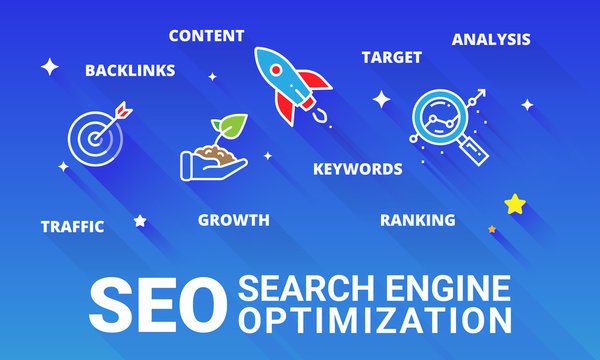In today’s digital age, where consumers increasingly rely on search engines to find information, products, and services, Search Engine Optimization (SEO) has become a cornerstone of successful online marketing strategies. SEO is the practice of optimizing a website to improve its visibility and ranking in search engine results pages (SERPs) like Google, Bing, and Yahoo. By implementing effective SEO techniques, businesses can drive organic traffic to their website, generate leads, and ultimately boost their bottom line.

Why is SEO Important?
- Increased Organic Traffic: One of the primary benefits of SEO is the ability to drive organic traffic to your website. When your website ranks higher in search results, it becomes more visible to potential customers who are actively searching for your products or services. This increased visibility leads to more website visitors and potential conversions.
- Improved Brand Visibility: SEO can help improve your brand’s visibility online. By ranking higher in search results, your brand becomes more recognizable and trustworthy. This can lead to increased brand awareness, customer loyalty, and ultimately, higher market share.
- Higher Conversion Rates: SEO can also help improve your website’s conversion rates. When your website is optimized for search engines, it is more likely to attract visitors who are interested in what you have to offer. This means that they are more likely to take the desired action, such as making a purchase, signing up for a newsletter, or contacting your business.
- Cost-Effective Marketing: Compared to other forms of marketing, SEO can be a cost-effective way to generate leads and sales. While it may require an initial investment, the long-term benefits can be significant. Once your website is optimized for search engines, it can continue to drive traffic and generate leads for years to come.
- Local SEO Benefits: For businesses with a physical location, local SEO is essential. By optimizing your website for local search terms, you can attract customers who are searching for businesses like yours in their area. This can be particularly beneficial for small businesses and those that rely on foot traffic.
Key SEO Factors:
- On-Page SEO: This refers to the optimization of elements on your website, such as your content, keywords, meta tags, and URL structure.
- Off-Page SEO: This involves building backlinks to your website from other reputable websites. Backlinks are a signal to search engines that your website is valuable and relevant.
- Technical SEO: This involves optimizing the technical aspects of your website, such as site speed, mobile-friendliness, and XML sitemaps.

SEO Best Practices:
- Conduct Keyword Research: Identify the keywords and phrases that your target audience is searching for.
- Create High-Quality Content: Produce informative, engaging, and optimized content that addresses your target audience’s needs.
- Optimize Your Website: Ensure that your website is mobile-friendly, fast-loading, and easy to navigate.
- Build Backlinks: Acquire high-quality backlinks from reputable websites.
- Monitor and Analyze Your Results: Track your website’s performance and make adjustments as needed.
In conclusion, SEO is a vital component of any successful online marketing strategy. By implementing effective SEO techniques, businesses can improve their online visibility, attract more customers, and achieve long-term success.












